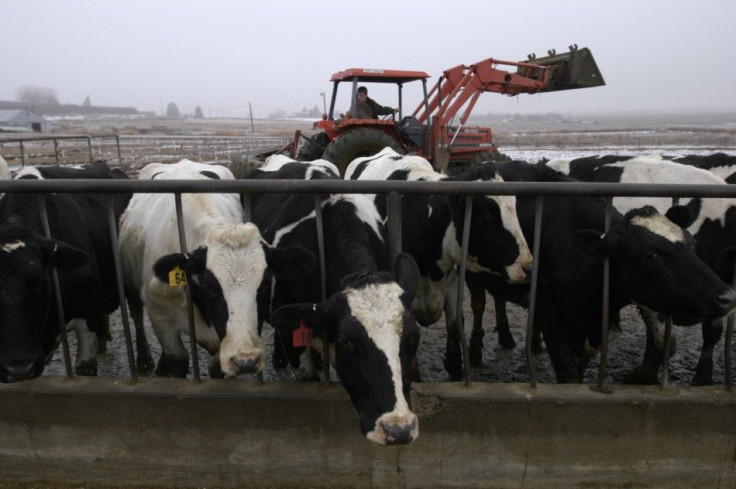U.S. Agriculture Department Reports Case Of Mad Cow Disease In California

The U.S. Agriculture Department said Tuesday it had found a case of mad cow disease in California. In a statement, USDA Chief Veterinary Officer John Clifford said the department has confirmed the nation's fourth case of bovine spongiform encephalopathy (BSE) in a dairy cow from central California.
The cow was never presented for slaughter for human consumption, so at no time presented a risk to the food supply or human health, Clifford said.
The statement said the carcass of the animal is being held under state authority at a rendering facility in California and will be destroyed.
Mad cow (bovine spongiform encephalopathy) is a fatal disorder that causes brain degeneration in cows, and can be transmitted to humans. It cannot be transmitted through milk, only meat.
UK researchers identified the first two cases of mad cow disease in 1986, according to the Centers for Disease Control and Prevention. The disease has since infected 184,500 herds.
IIn February, clinicians diagnosed two cases of Creutzfeldt-Jakob disease, the human version of mad cow disease, in Marin County, Calif.
Officials with the California Department of Public Health said that neither case originated from mad cow disease, which transmits through a prion protein. One CJD patient died from the disease and officials declined to notify the other patient.
The rare disease has an incubation period of about two to eight years, according to reports.
According to the USDA statement, mad cow disease has declined recently. In 2011, according to the USDA, there were only 29 worldwide cases of BSE, a 99 percent reduction since the peak in 1992 of 37,311 cases.
© Copyright Thomson Reuters 2024. All rights reserved.












